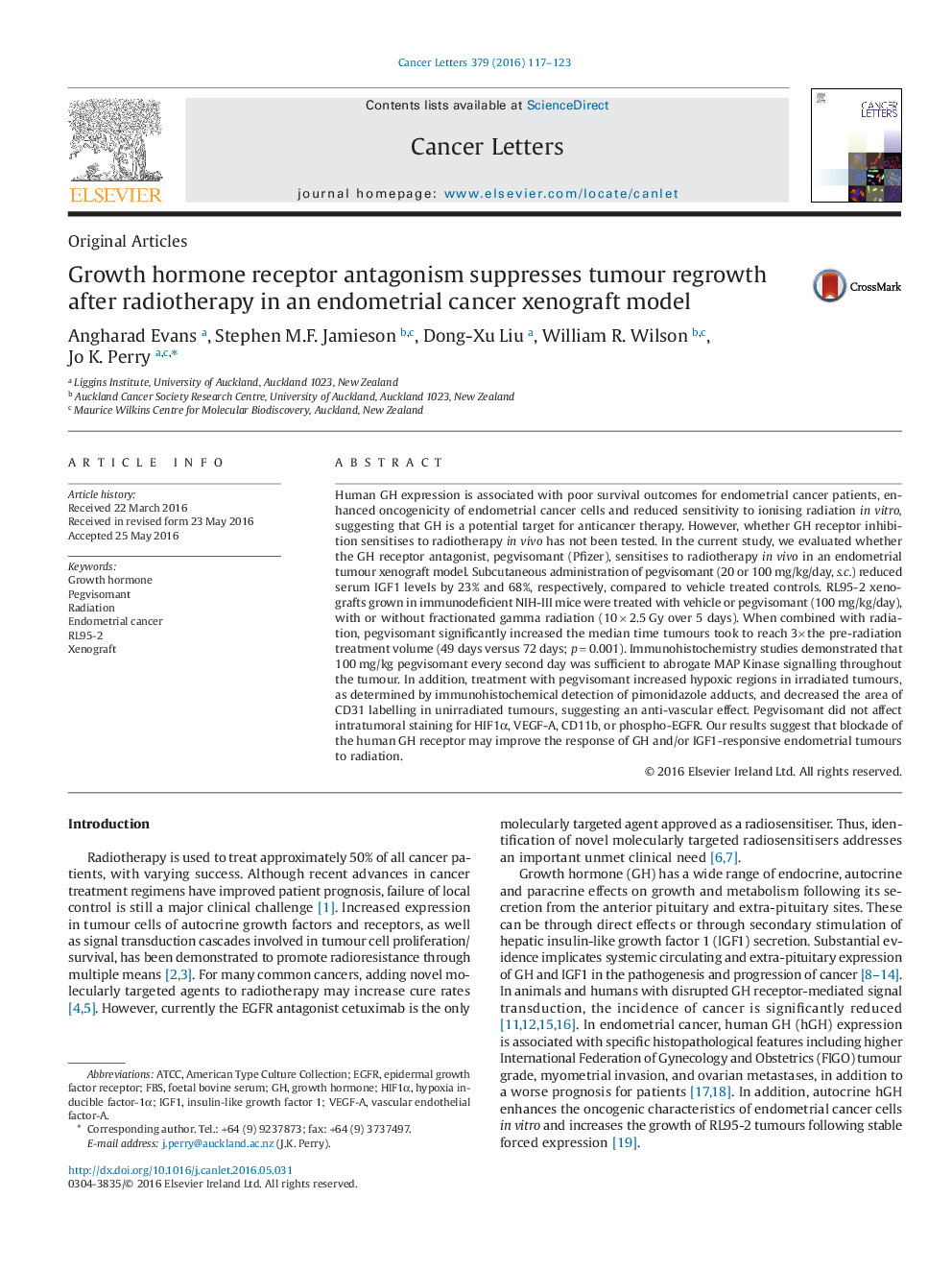| کد مقاله | کد نشریه | سال انتشار | مقاله انگلیسی | نسخه تمام متن |
|---|---|---|---|---|
| 2116110 | 1084690 | 2016 | 7 صفحه PDF | دانلود رایگان |
• The GH receptor is a potential target for anticancer therapy.
• We demonstrate that pegvisomant combined with radiation significantly delayed the regrowth of RL95-2 xenografts.
• Pegvisomant also decreased the area of CD31 labelling in unirradiated tumours.
• Blockade of the human GH receptor may improve the response of GH and/or IGF1-responsive tumours to radiation.
Human GH expression is associated with poor survival outcomes for endometrial cancer patients, enhanced oncogenicity of endometrial cancer cells and reduced sensitivity to ionising radiation in vitro, suggesting that GH is a potential target for anticancer therapy. However, whether GH receptor inhibition sensitises to radiotherapy in vivo has not been tested. In the current study, we evaluated whether the GH receptor antagonist, pegvisomant (Pfizer), sensitises to radiotherapy in vivo in an endometrial tumour xenograft model. Subcutaneous administration of pegvisomant (20 or 100 mg/kg/day, s.c.) reduced serum IGF1 levels by 23% and 68%, respectively, compared to vehicle treated controls. RL95-2 xenografts grown in immunodeficient NIH-III mice were treated with vehicle or pegvisomant (100 mg/kg/day), with or without fractionated gamma radiation (10 × 2.5 Gy over 5 days). When combined with radiation, pegvisomant significantly increased the median time tumours took to reach 3× the pre-radiation treatment volume (49 days versus 72 days; p = 0.001). Immunohistochemistry studies demonstrated that 100 mg/kg pegvisomant every second day was sufficient to abrogate MAP Kinase signalling throughout the tumour. In addition, treatment with pegvisomant increased hypoxic regions in irradiated tumours, as determined by immunohistochemical detection of pimonidazole adducts, and decreased the area of CD31 labelling in unirradiated tumours, suggesting an anti-vascular effect. Pegvisomant did not affect intratumoral staining for HIF1α, VEGF-A, CD11b, or phospho-EGFR. Our results suggest that blockade of the human GH receptor may improve the response of GH and/or IGF1-responsive endometrial tumours to radiation.
Journal: Cancer Letters - Volume 379, Issue 1, 28 August 2016, Pages 117–123
